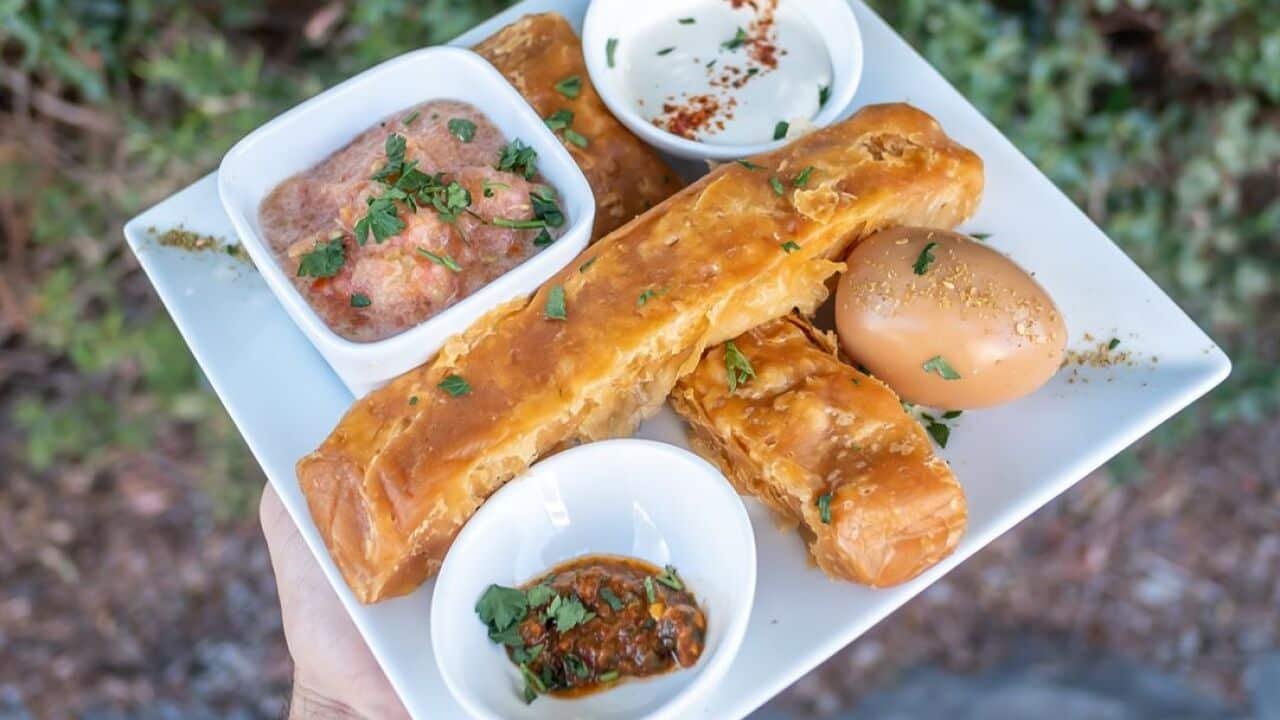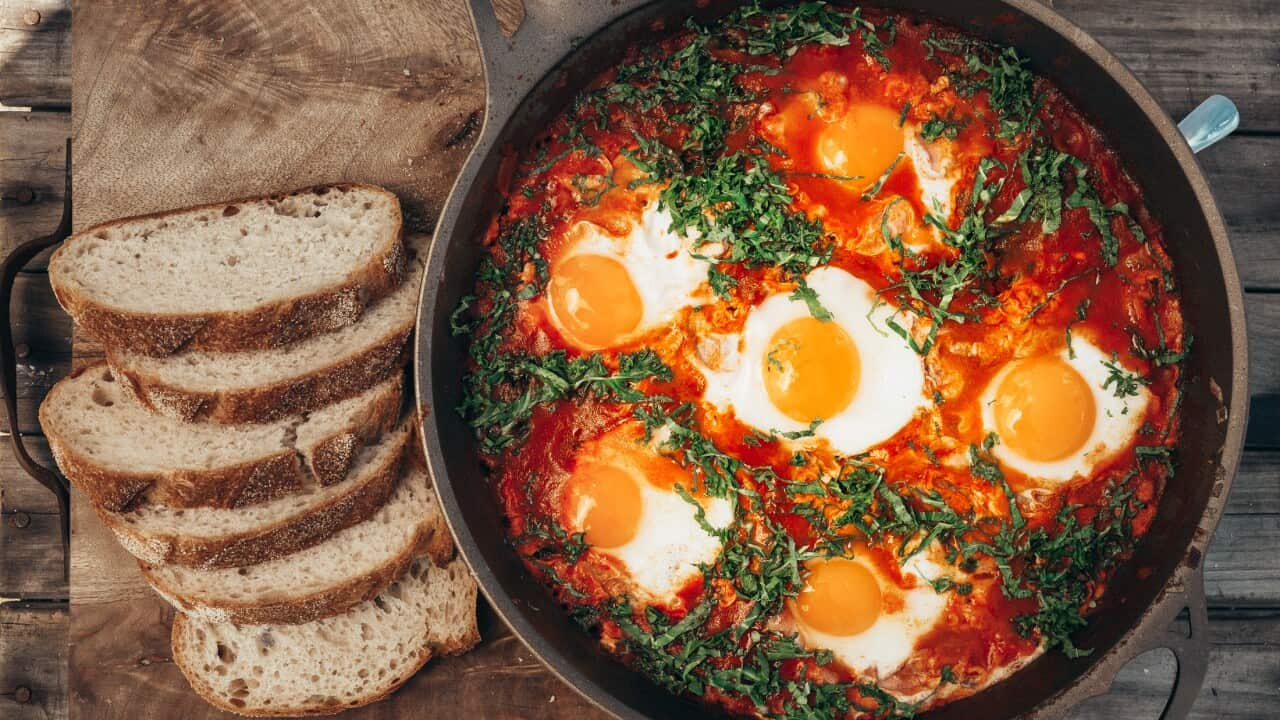"When we were growing up, we'd get up every Saturday morning to the smell of the jachnun being baked all night. We'd jumped out of bed, go straight to the pot and start to eat it while our mom was still crushing the tomatoes, preparing the chilli and the egg," recalls Gili Nachum.
"As we grew older, we'd go to the nightclub and come back at six or seven in the morning and start eating the jachnun before it was even ready." Nachum is the owner of in Ormond. He has turned the restaurant’s courtyard into , where he sells jachnun on Saturdays.
Nachum is the owner of in Ormond. He has turned the restaurant’s courtyard into , where he sells jachnun on Saturdays.

Jachnun, hummus and falafel plate at The Black Yard. Source: Audrey Bourget
“In the Jewish tradition, there are a few Saturday morning foods that basically came from the fact that, as Jewish, you’re not allowed to light a stove on Shabbat,” explains Nachum. Brought over by Yemeni Jews, jachnun is eaten at home in Israel, but also sold in restaurants and at roadside stands. It evokes many memories for those who grew up with it.
As we grew older, we'd go to the nightclub and come back at six or seven in the morning and start eating the jachnun before it was even ready.
"Every Saturday, someone used to turn up at our house with it or we'd go to a friend's house to have it. On Friday evenings, we'd talk about it: 'I heard this house and this house is making jachnun for tomorrow, we should go and say hello'," says Din Haikin, who was born in Israel.
With his family, he runs in Sydney, where jachnun sometimes shows up on the menu as a special.
His mother, Bosmat Haikin, makes jachnun at home and for their cafes. "People have different ways of making it and each background believe their way is the best," she says, laughing.
The dough for jachnun is made on Friday with flour, water, salt and a sweetener like sugar, honey or date honey. It's left to rest for a few hours, and then rolled out into thin squares. They're brushed with margarine, oil or clarified butter, and rolled up. The rolls go into a baking dish in the oven for 10 to 16 hours at around 100 °C. In the morning, the jachnun comes out golden and slightly sweet.
It's traditionally served with an egg (slow-cooked on top of the rolls in the baking dish), zhug (a Yemeni chilli sauce) and crushed tomatoes. It sometimes is also accompanied by tahini, cheese and hummus.
Jachnun is best eaten with your hands. "The whole idea is to mix together the pastry, which is a bit sweet, with the crushed tomato, which is sour and salty, with the zhug to give a spicy element, and the hard-boiled egg. You combine all the flavours in one bite," explains Nachum.
While you can buy the dough at kosher grocers, Nachum says it's just not the same. "It's like going to a bakery doing beautiful handmade croissants and going to get some at the supermarket," he says. In Melbourne, The Black Yard is open every Saturday, but the jachnun are often sold out by midday so you better get there early if you want to try it. In Sydney, jachnun is sometimes a special at Shenkin Kitchen. It also makes other Jewish bread and pastries like challah and ziva, a puff pastry stuffed with cheese and olives.
In Melbourne, The Black Yard is open every Saturday, but the jachnun are often sold out by midday so you better get there early if you want to try it. In Sydney, jachnun is sometimes a special at Shenkin Kitchen. It also makes other Jewish bread and pastries like challah and ziva, a puff pastry stuffed with cheese and olives.

Gili Nachum demonstrating how to eat the jachnun. Source: Audrey Bourget
"Jachnun is filling and comforting," concludes Nachum. "It has the right level of everything, it's very addictive if eaten right."
1-3 Ulupna Road, Ormond, Victoria
Sat 9 am – 5 pm
Locations in Glebe, Erskineville, Enmore and Surry Hills







